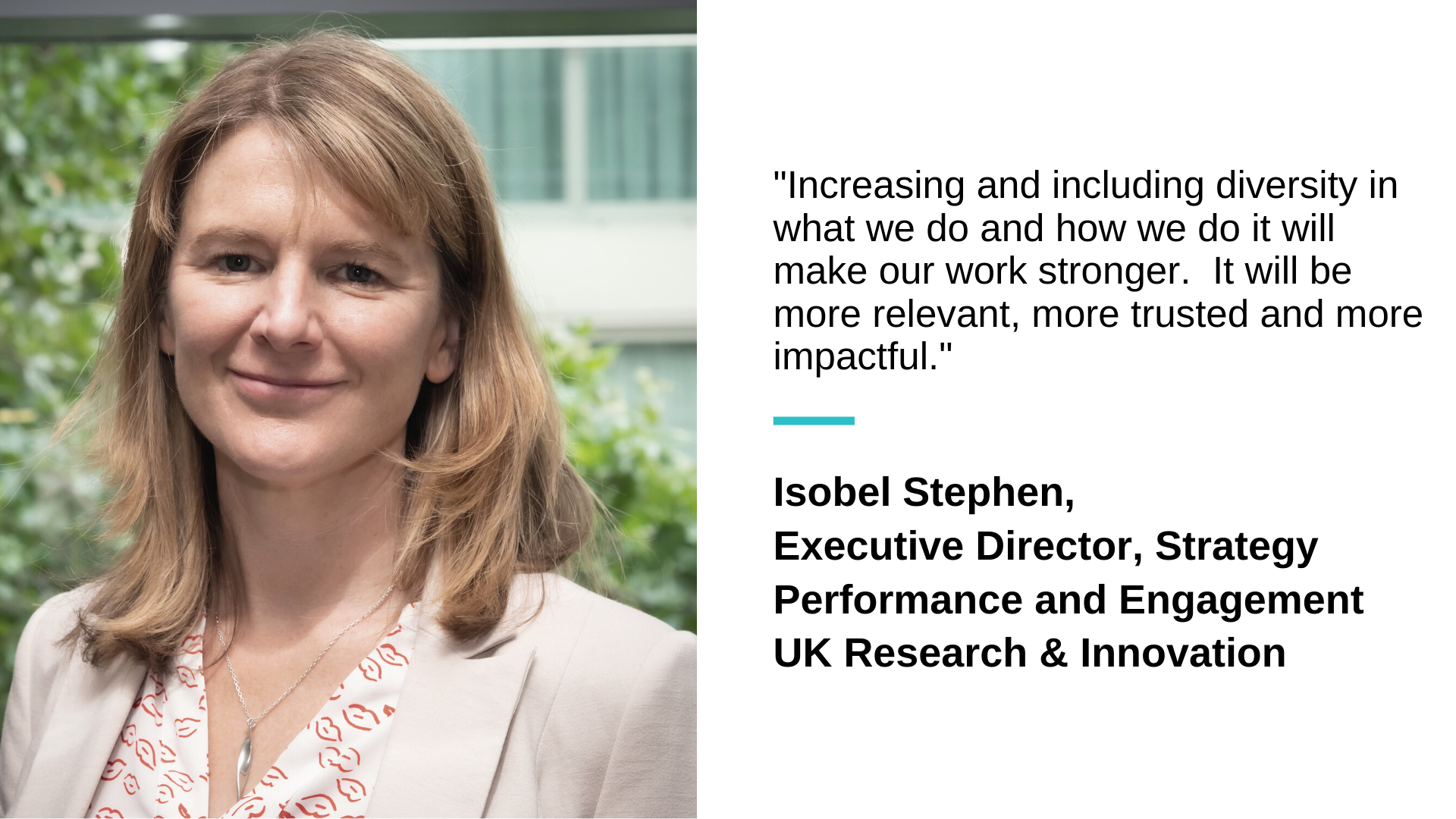Diversity of ideas: we need more tools in our toolbox
Posted 2020-01-15 11:56:20 by Isobel Stephen, Executive Director, Strategy, Performance and Engagement at UK Research and Innovation (UKRI)

My favourite metaphor for diversity is one of a toolbox.
Imagine you have a beautifully hand crafted toolbox which you know contains tools to help you with what you are trying to achieve. Would you rather it contained a set of brand new shiny identical hammers? Or would you rather it contained a variety of tools of different shapes and sizes – spanners and wrenches; flat head and phillips screwdrivers as well as a shiny hammer or two; and perhaps an old pair of eyebrow tweezers and some hairpins?
The answer – obviously – is that it depends on the task. If you are nailing a series of identical objects to a nice flat wall, you might prefer the hammers. If you are attempting something more complex, or more creative – like building a house, or perhaps trying to inspire and exchange the best ideas from research and innovation – then a wide selection of tools, or a diverse range of people, is undoubtedly better.
Not only do we need a range of perspectives from people with different backgrounds to develop the best ideas, but we also need those different people to ensure that the ideas can make a real difference in the real world. This isn’t difference for the sake of it, but difference that brings in different experience, different perspectives, different ways of seeing and crucially, different solutions. This is essential for research and innovation to grapple with grand challenges. We need every available established tool, and ones newly imagined, to produce research and innovation that benefits everyone.
UKRI was set up almost 2 years ago to bring together the seven Research Councils, Research England and Innovate UK to create knowledge with impact, and ensure the UK remains a world leader in research and innovation. We therefore connect right across the R&I landscape, including knowledge exchange with policymakers, industry and across research fields (our Strategic Priorities Fund is a good, recent example). So we are passionate about supporting and integrating a diversity of perspectives in our work.
One of the joys of UKRI is that it invites us to try out multidisciplinary approaches, but of course diversity is much richer and more complex than that. Let me highlight two great areas of our work in the coming year.
The first is our ongoing commitment to public engagement. Research and innovation needs to be responsive to the priorities and values of everyone in society. We have set out a clear vision for public engagement and in 2020 we will be working with innovators and researchers across the UK to make it a reality. We want to engage under represented communities and places, and encourage greater active participation in research through citizen science and co-designed projects. We want to ensure we are listening to public concerns and aspirations. We want to nurture a new generation passionate about research and innovation – and who play an active role in helping to support and develop great ideas.
The second is UKRI’s commitment to tackling and improving equality, diversity and inclusion across the sector. As I said earlier, diversity of ideas and people will deliver better research and more wide reaching impacts, and it is fundamental to a stronger society. We have already appointed an External Advisory Group to help us identify and prioritise our work in this area. We have commissioned and published three evidence reviews to inform our policy development and identify knowledge gaps. Informed by our bullying and harassment review, carried out by Global Institute for Women’s Leadership, King’s College London, we have strengthened our policy in this area.
In 2020, we will launch our five-year plan to strengthen EDI but we know there is no magic answer. We will continue to listen and work with others on continuously strengthening and improving our approaches. We will examine our processes and protocols as part of this work, we will be transparent and we will continue to hold ourselves to account.
Increasing and including diversity in what we do and how we do it will make our work stronger. It will be more relevant, more trusted and more impactful. Working together, across academia, business, public policy and wider society, we can make positive changes in 2020 that will deliver this real benefit to society.
So what do you think? What other tools do we need to have in our toolbox? And do you have enough hairpins, tweezers and phillips head screwdrivers in yours?
Isobel Stephen is Executive Director, Strategy, Performance and Engagement at UK Research and Innovation (UKRI). Isobel job shares the role with Emma Lindsell. They joined UKRI in autumn 2019 bringing extensive policy, strategy and operations experience from across Government. Before joining UKRI, Isobel was Housing Director at the Ministry of Housing, Communities and Local Government.










































































































